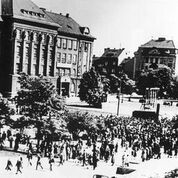
Mass protests of the citizens of Plzeň against currency reform in 1953. Its size and radical nature make it the largest popular anti-regime protest in Czechoslovakia in the 1950s and an expression of the crisis of the communist system.

A sequence of modern political events characteristic of the development of the independent Czech Republic. The latest period of modern Czech history, characterised by adherence to market economy, parliamentary democracy and integration into international structures.

A series of show trials against representatives of the political opposition in the 1950s. They were aimed at consolidating communist power. However, they were also aimed at some distinguished communists.

Although political plurality was historically limited in different ways, currently there are almost one hundred political parties in the Czech Republic.
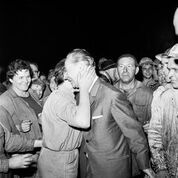
General label for democratic reforms in Czechoslovak politics and social and media sphere in 1968. Unique and internationally famous attempt at achieving a vision of socialism founded on citizens’ participation, freedom of elections and worldviews.
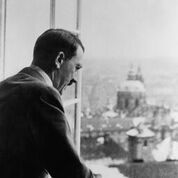
A puppet, occupied state established on the territory of the Second Republic. It was formed on the basis of Adolf Hitler’s order of 16 March 1939, after the occupation of the Czechoslovak territory by the German army. It was a period of violent Germanisation and political oppression of the Czech people.
Radio station that was intended for disseminating objective information about dictatorship regimes. It has operated in the Czech Republic since 1995

Czechoslovak politician, lawyer and economist. He became the first victim of political assassination in Czechoslovakia.
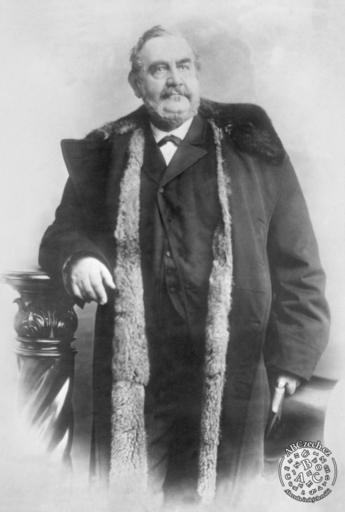
One of the most important Czech politicians of the second half of the 19th century, economist and publicist. He is regarded as the political successor to František Palacký. His efforts to improve the position of the Czech people in the Habsburg state were largely unsuccessful.
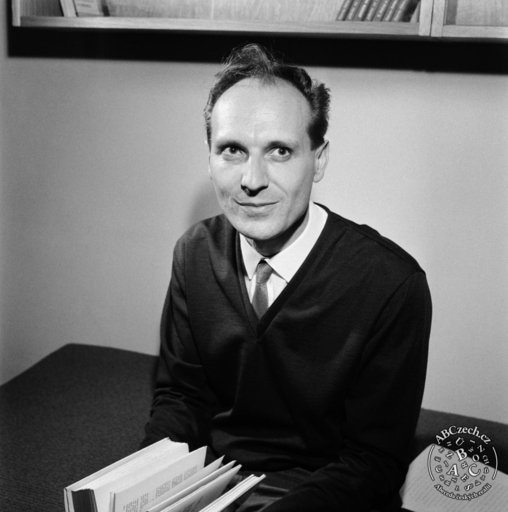
Sociologist and philosopher, one of the authors and pioneers of the term “technological revolution”, describing the society of the second half of the 20th century. Richta is still regarded as one of the most distinguished theoreticians of the development of the post-industrial society.
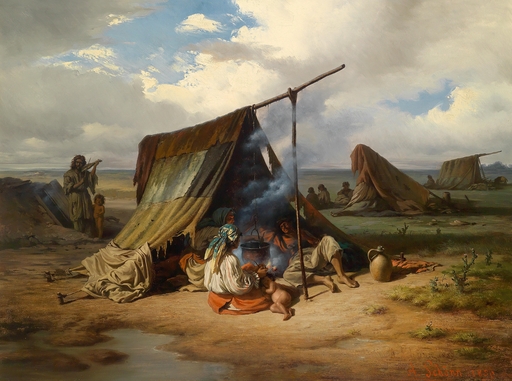
An ethnic minority in the Czech Republic that has faced discrimination for a long time. They have lived in the Czech lands since the early 15th century.

Daily newspaper that became the central print propaganda tool of the Communist Party of Czechoslovakia. It had the largest circulation on the market between 1948 and 1989.

Independent literature that appeared in Czechoslovakia shortly after the communist coup in February 1948 (underground, surrealists) and became especially widespread during the period of normalisation in the 1970s and 1980s. It was a part of independent culture and an expression of independent and free thinking.

Struggle for the liberation of Czechoslovakia from German occupation.

Term for the state and political entity of former Czechoslovakia between the beginning of October 1938 and 15 March 1939. The state founded on the basis of the acceptance of the Munich Agreement in September 1938. The state’s political culture was characterised by conservativism and authoritarianism.
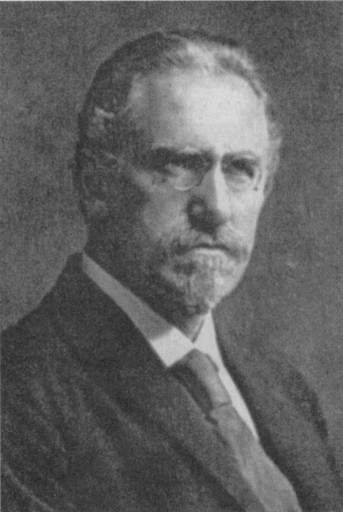
Czech and Czechoslovak Social Democratic politician and journalist, doctor of law, follower of the humanistic principles of T. G. Masaryk. One of the “founding founders” of Czechoslovakia.

A change in political, economic and cultural standards in Czechoslovakia towards the Soviet model between 1945 and 1956. A significant change of the social order and the parameters of civil society according to the experience of Stalinist modernisation and its ideology.
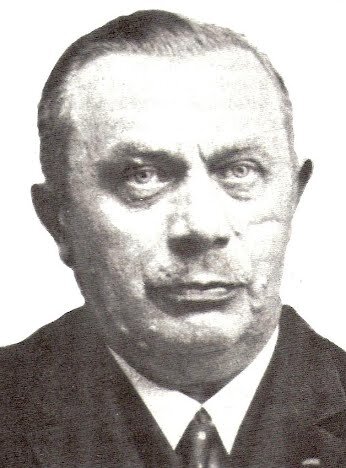
Czech-German agrarian politician, philologist and literary scholar, member of several Czechoslovak governments. Advocate of cooperation between Czechs and Germans in a common state.
2016-2020 ABCzech.cz - © Filozofická fakulta Univerzity Karlovy
Content from this website may be used without permission only for personal and non-commercial purposes and with the source cited. Any other use is allowed only with the authors' consent.
This web application Sonic.cgi meets GDPR requirements. Current information can be found here.